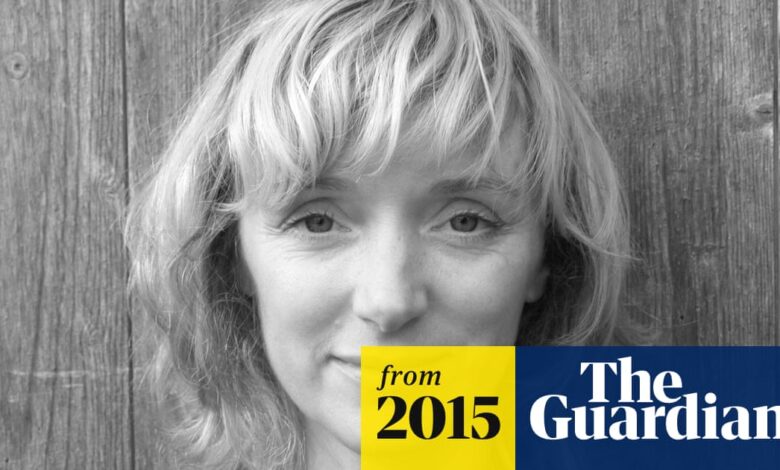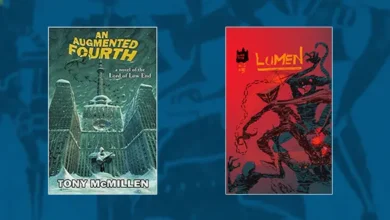Jenny Valentine: I write because I want to find out what happens | Children’s books

At the time which you wrote your first novel, Finding Violet Park, you already had another job – what motivated you to begin writing a book then?
I was working as a teaching assistant at a local primary school and I loved that job. Six-year-olds are hilarious company. But I had always wanted to write and I knew I was sort of sitting on the idea from fear of failure so I gave it a go. My children were very little then. I remember thinking I wanted them to grow up and be proud of me.
You have previously said that when writing Finding Violet Park, you “carried a notebook around and scribbled stuff down”. Do you still do that and what other useful tips can you share with us?
I still carry a notebook and now my phone is crammed full of stuff too. I was sitting on the train a couple of days ago typing things into my phone about the man sitting opposite me. I felt bad, like I was taking something from him without asking. But that’s the job! Now and again being a writer feels like being a spy. I also have a notebook embedded in my brain. Sometimes I see things I know I’m not going to forget. Even as I’m looking at them I am certain they will find their way into a story. I suppose if there is a tip here it’s about being observant and letting things filter down until they reach the page. Does that make sense?
I know you studied English Literature at university, which apparently almost put you off reading but not quite. Do you think that exploring books in schools and universities (ie. educational settings) can take away the personal pleasure of reading?
Yes I do! I’m not denying there’s a place for rigorous academic study of fiction. I got a lot out of my degree course. I learned so much. But I did lose sight of the magic. And that’s what it’s all about for me, reading and writing fiction. Its magic. It’s a disappearing act. That’s what hooked me in the first place and what hooks me still. It’s very difficult to disappear if you’re taking a book’s engine apart and trying to put it back together again. That’s not magic it’s mechanics.
How has your writing process changed since you wrote your first novel?
Well weirdly, because I had such a long gap between my last novel in 2010 and this new one, I had to go back to the beginning with my writing process, like starting from scratch. I felt like I was at square one, wasting a lot of time trying to sound like a writer. Violet Park taught me that you just have to fall into the story and get carried along by it and stop trying to control everything. I had to learn how to do that again with Fire Colour One. Basically, I write without a plan, without knowing what’s going to happen next and this makes writing a book very close to the experience of reading one. It’s selfish in a way. I write because I want to find out what happens. I had to remember that was how I did it.
Why did you decide to write books for teenagers, and what do you like about this?
I never decided. When I was writing Violet Park and having doubts I asked a wise friend, “Who is going to read this thing anyway?” She said it wasn’t my job to worry about that and I should just focus on the story. It was the best bit of advice (THANK YOU Lauren) and I’ve stuck to it ever since. I’m not thinking about teenagers when I write. I’m not thinking about readers full stop. I’m just thinking about the story. The danger of being too aware of your readership is that you over cater and patronise, or that you limit the possibilities of a story. Such a bad idea if you ask me.
Why do you think that it is important for teenagers to read modern Young Adult fiction, and do you think this is more or less important than reading classics and adult books?
This is such a good question and I’m going to answer it honestly. I do not think for a minute that modern YA is the be all and end all of teenage reading. I worry about it a bit because it’s so prescriptive. When I was a teenager YA didn’t exist and I would have had serious doubts about the idea of reading titles adults had declared suitable for me. But some really good stories and some really powerful experiences come from and fit right in the YA genre. Sometimes I wonder about the books that really resonated with me when I was that age. If they were published now would they be YA? And does it even matter? Classics and adult novels are an absolute must if they’re what you’re interested in. In the end, I trust a good reader to choose. So many books, so little time!
Art is a very important theme in your new novel, ‘Fire Colour One’. How interested are you in the art world?
Very. Not in the business side so much. Not in the fact that Tracey Emin has a whole floor of accountants working away for example. I see as many exhibitions as I can. Art gets to me before I’ve had time to think and that’s what I love about it. What I’m fascinated by, aside from enjoying art like anyone can, is the whole freedom of that. I think it’s the perfect antidote to a life made of words.
Why did you choose to focus your most recent book on a complicated family relationship, instead of the typical teen love story?
Who needs another typical teen love story?! Truthfully? I was working some things out. My dad died and at his funeral I saw him from a whole new angle, as someone once in the world, not just my beloved dad, and it was a profound experience. I had to look at that. I had to make use of it somehow.
Why did you choose to make Iris, the main character in Fire Colour One, grapple with issues such as never having her voice heard, and finding her release in setting fire to things?
It’s very important to me that you understand I NEVER start with an issue. I am allergic to them. Because I write the way I do, I’m finding out about these characters the same way that you are. They are sort of fully formed and then I sit down and get to know them. It sounds like hogwash but I promise you that’s how it feels. Once I’ve finished writing a book I can say what it’s about and I can analyse a character quite happily. But when I’m writing it’s not like that. For instance, I’m not sure I actually knew Iris had a problem with not being heard. You said that not me! She’s frustrated and cheated and full of cold rage and fire helps her control that I suppose. But I can only say that now, after the fact.
Did you find being a teenager challenging?
I don’t remember thinking to myself “this being a teenager thing is hard”. It’s not really how it works is it? I was leaping from one moment to the next like I still am. I was inside my own skin and it’s not always easy to get perspective. Ask my family on the other hand if I was a challenging teenager. That would be a YES. I think I made life pretty hard for those around me. Never on purpose, but that’s not the point.
When you were a teenager, what were the books which had the biggest impact on you/helped you through these times?
Franny and Zooey by JD Salinger. I’ve read it so many times. I still read it. And every time I’m actually shocked by how much of who I think I am came straight out of that book. Slaughterhouse Five by Kurt Vonnegut. In fact pretty much anything by Kurt Vonnegut, because he has a way of looking at the human race like an indulgent and slightly disappointed parent. Crime and Punishment by Fyodor Dostoyevsky because even though it was difficult and different and sentences seemed to last for hours it was a living breathing thing and I couldn’t put it down. The Member of the Wedding by Carson McCullers because there’s nothing like it. It’s like walking into someone’s house and watching them just living. It appeals to the spy in me.
Do you think that writing a book is something that you can do at any time of life, and if so, what would you say to young writers?
Yes I suppose so. For me that meant writing my first book at 34. I wouldn’t know about trying to do it at 15 or something, not entering the whole publishing industry thing. I think it’s important to make a distinction here between writing for the love of it and writing for a living or for recognition or whatever. JD Salinger wrote plenty of stories about the Glass family that he never intended for publication. In fact I think he burned them. I guess he wrote them to give his characters life and because he wanted to spend more time with them. I have never got over the purity of that. Everyone who wants to write should write without a doubt. But not everyone at every age is ready for what comes next. You have to be quite tough. It’s hard, solitary work and then your books go off and do stuff without you, if you’re very lucky.
What is the thing which you most enjoy about reading and writing books?
The magic act. The disappearing. Out of body experience. Love it.
Are you working on your next book, can you tell us anything about it?
I am. I can tell you what I hope for it but that is not a guarantee. It’s about a family of boys. (I’m not very good at this. It’s like walking around in the dark.) I hope that it will be funny(ish). I’ve had a sad few years and now that that’s over I’d like to write a happy book.
Source link



